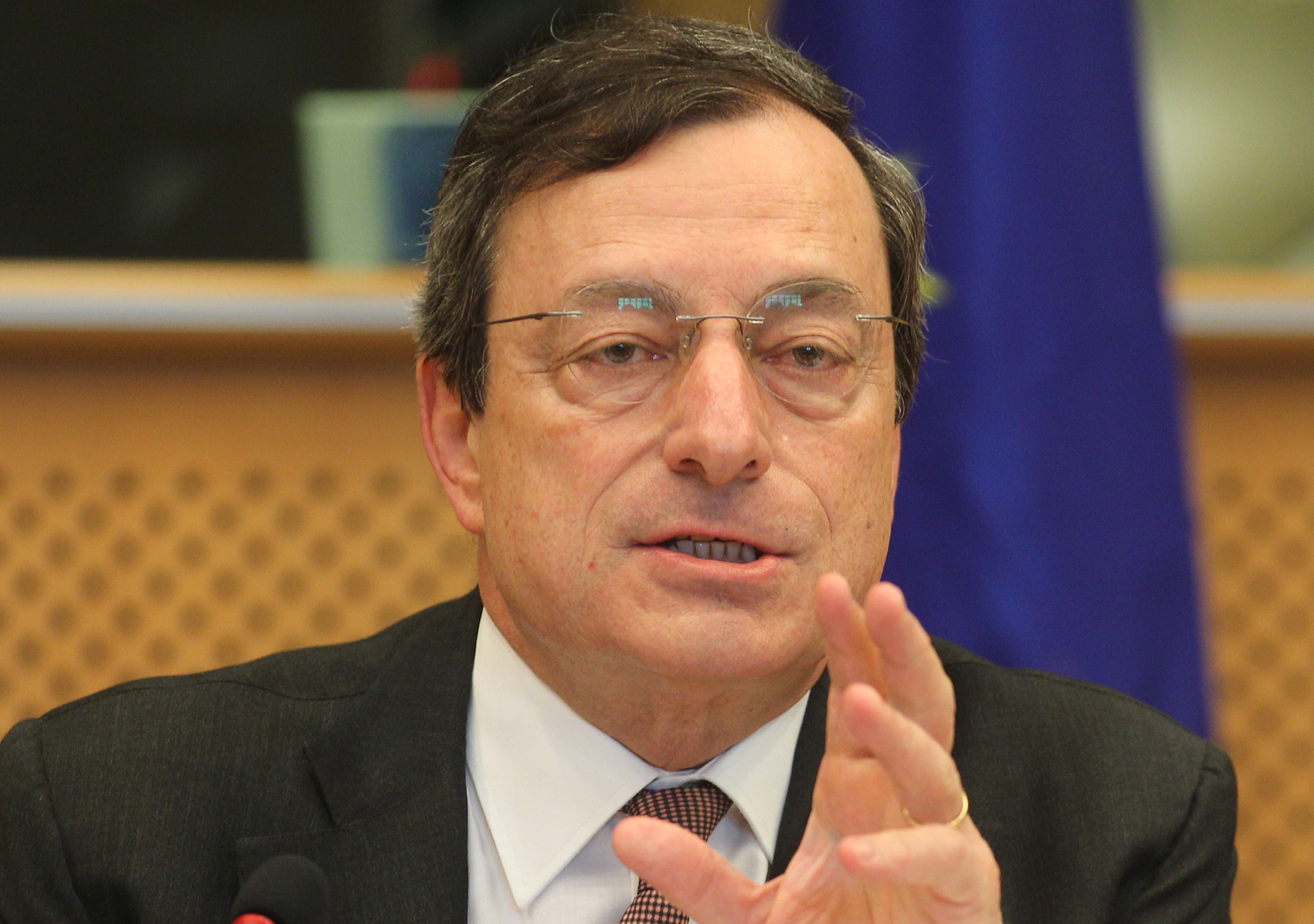 In this May 31, 2012 file picture President of the European Central Bank Mario Draghi reports to the Economic Committee, in capacity as the head of the European Systemic Risk Board, at the European Parliament in Brussels. European Central Bank president Mario Draghi has already taken Europe's monetary authority into uncharted territory. Now, with the debt crisis in Europe threatening further disaster, he may have to push it even farther into the unknown to save the euro. The 17 countries that use the euro are struggling as economies across the region face deepening recessions. Spain and Italy, the two chief trouble spots, are threatened with a financial collapse that could tear the 13-year old currency union apart and rock the global economy. (AP Photo/Yves Logghe,File)
In this May 31, 2012 file picture President of the European Central Bank Mario Draghi reports to the Economic Committee, in capacity as the head of the European Systemic Risk Board, at the European Parliament in Brussels. European Central Bank president Mario Draghi has already taken Europe's monetary authority into uncharted territory. Now, with the debt crisis in Europe threatening further disaster, he may have to push it even farther into the unknown to save the euro. The 17 countries that use the euro are struggling as economies across the region face deepening recessions. Spain and Italy, the two chief trouble spots, are threatened with a financial collapse that could tear the 13-year old currency union apart and rock the global economy. (AP Photo/Yves Logghe,File)PAN PYLAS
LONDON (AP) - Europe is edging closer to recession, dragged down by the crippling debt problems of the 17-country euro bloc, official figures showed Tuesday.
Eurostat, the European Union's statistics agency, revealed that the economies of both the eurozone and the wider 27-country EU shrank by a quarterly rate of 0.2 percent in the second quarter of the year. In the first quarter, output for both regions was flat. A recession is officially defined as two straight quarters of falling output.
Europe's stumbling economy is making it harder for other economies around the world to recover. The region is the U.S.'s largest export customer and any fall-off in demand will hit order books - as well as President Barack Obama's election prospects.
"The big picture is that the economic growth required to bring the region's debt crisis to an end is still nowhere in sight," said Jonathan Loynes, chief European economist at Capital Economics.
The eurozone is grappling with sky-high debt levels and record unemployment. Compared with the year before, the eurozone's economy is 0.4 percent smaller.
Without Germany continuing to post solid levels of growth, the eurozone would officially be in recession.
Europe's largest economy grew by a quarterly rate of 0.3 percent in the second quarter. Though down on the 0.5 percent recorded in the first quarter, the advance was a little more than expected - most economists thought Germany would only grow by 0.2 percent.
Though Germany benefits from strong demand for its products for the time being, its high-value exporters are finding it increasingly difficult to tap international markets. Forward-looking surveys, including Tuesday's closely-monitored ZEW survey of German investor sentiment, are suggesting that confidence is taking a knock as Europe moves from one crisis point to another.
The other 16 countries that use the euro are Germany's biggest export market and six of them are in recession. The U.S. is also coming off the boil, with growth in the second quarter down compared to the previous three months at 0.4 percent, according to Eurostat.
Slower economic growth is also making it harder for governments and central banks to control the debt crisis in Europe. Shrinking economies make it more difficult to get the public finances into shape. Lower output dents tax revenues while forcing up the cost of social benefits.
Greece, Spain, Italy, Cyprus and Portugal are all in recession and all five are at the front-line of Europe's debt crisis. Bailed out Ireland publishes its second-quarter figures soon.